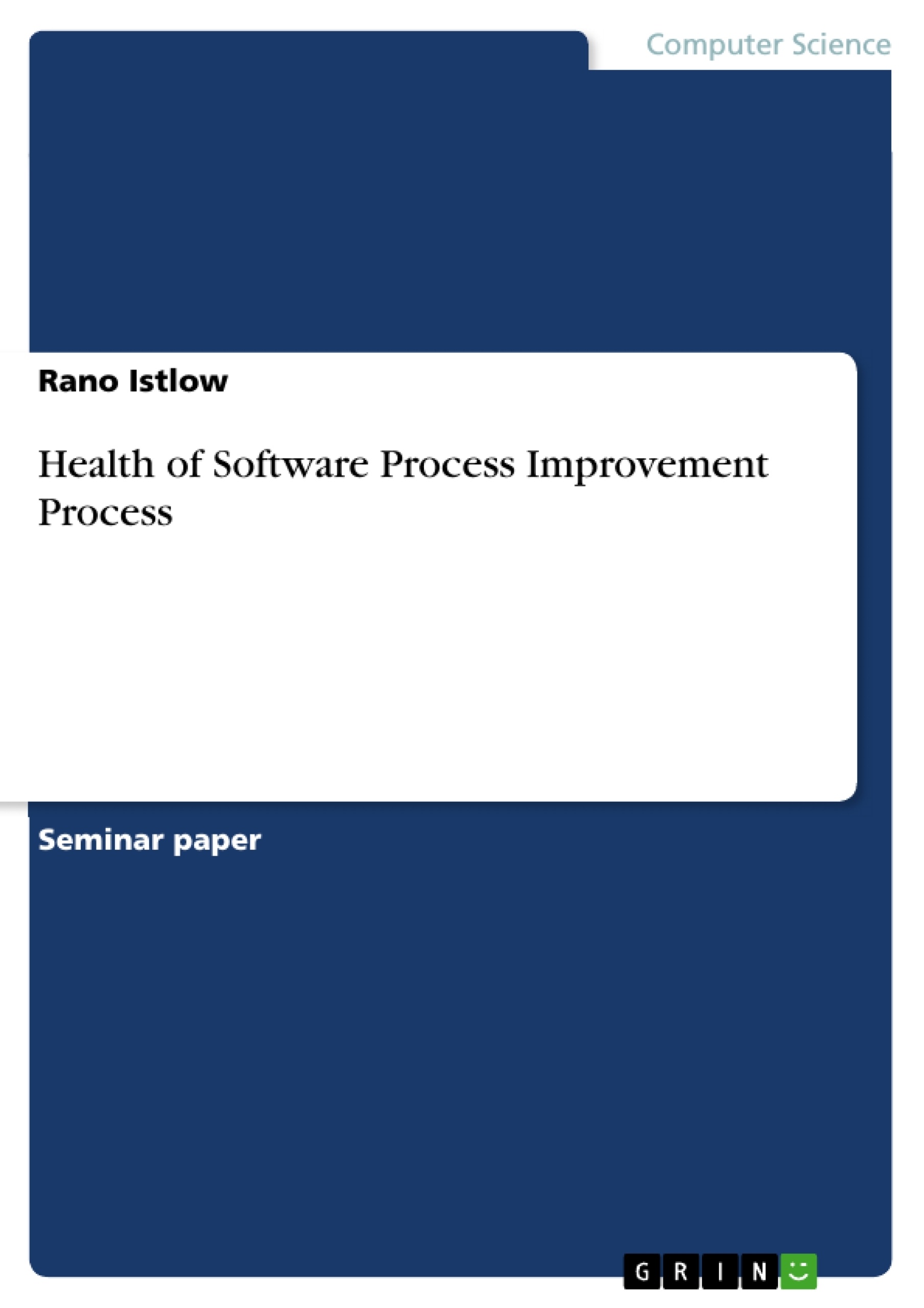This report analyzes ten experience reports about software process improvement (SPI) projects at different companies. Several lessons learnt are listed from each report and used to derive factors that define the success and failure of SPI projects. The generated factors are combined and aggregated. Finally it is suggested how these factors can be used in order to contribute to the health of SPI products.
Inhaltsverzeichnis (Table of Contents)
- Introduction
- Research Method
- State of the art
- Experiences from failed SPI projects
- Experiences from succeeded SPI projects
- Analysis
- Proposal
- Final conclusion
Zielsetzung und Themenschwerpunkte (Objectives and Key Themes)
This report examines ten industrial experience reports about software process improvement (SPI) projects, with the aim of understanding what factors contribute to their success and failure. Through analysis of these experiences, the report aims to identify critical success factors and provide recommendations for improving the health of SPI projects.
- Factors that influence the success and failure of SPI projects.
- The importance of process improvement in relation to certification.
- The role of communication, transparency, and stakeholder involvement in SPI initiatives.
- The influence of organizational culture and resources on the effectiveness of SPI projects.
- The significance of motivation and commitment within the SPI project team.
Zusammenfassung der Kapitel (Chapter Summaries)
The report begins by introducing the research problem and the purpose of the study. The research methodology is then explained, detailing the selection and analysis of ten industrial experience reports.
Chapter 3 presents a comprehensive overview of the experiences from both failed and successful SPI projects. Each report is summarized, highlighting key challenges and learnings.
Chapter 4 analyzes the experiences from the reports, extracting individual factors that contribute to project success or failure. These factors are then grouped and summarized into ten major categories.
Chapter 5 provides practical recommendations for how to use the identified factors to improve the health of SPI projects. Each factor is discussed in detail, providing guidance on how to implement strategies that address the identified issues.
The report concludes with a summary of the findings, emphasizing the importance of social and psychological aspects of change management in ensuring the success of SPI projects.
Schlüsselwörter (Keywords)
The primary focus of this report is on analyzing software process improvement (SPI) projects and identifying factors that contribute to their success. Key themes include experience reports, industry reports, success factors, and the health of the SPI process. The report also explores concepts such as process ownership, stakeholder involvement, and change management.
Frequently Asked Questions
What is Software Process Improvement (SPI)?
SPI refers to a systematic approach to increasing the efficiency and quality of software development processes within a company, often aiming for specific certifications or better product health.
What are the critical success factors for SPI projects?
Key success factors include strong communication, transparency, active involvement of all stakeholders, process ownership, and high motivation within the project team.
Why do many SPI projects fail?
Failures are often linked to a lack of commitment from management, poor organizational culture, insufficient resources, or ignoring the social and psychological aspects of change management.
How does organizational culture affect SPI?
A culture that resists change or lacks transparency can hinder SPI initiatives. Successful SPI requires an environment that supports continuous improvement and values employee input.
What is the role of stakeholder involvement in SPI?
Involving stakeholders early ensures that the improved processes meet actual needs and increases the likelihood that the changes will be adopted and maintained long-term.
- Quote paper
- Rano Istlow (Author), 2011, Health of Software Process Improvement Process, Munich, GRIN Verlag, https://www.grin.com/document/214266



